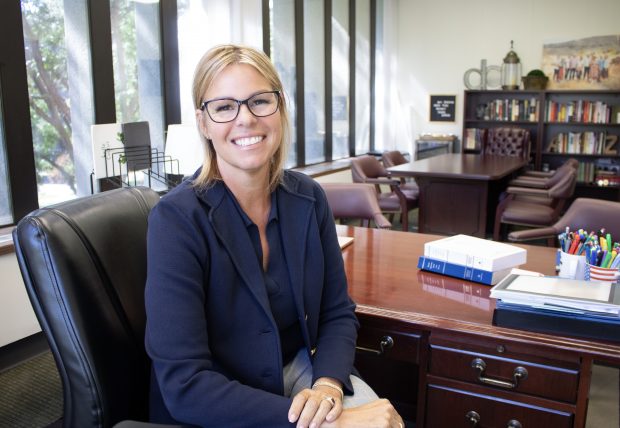The Idaho Department of Education will pilot a youth wellbeing assessment in school districts across Idaho this fall.
The survey seeks to gather anonymous information on students’ behavioral health to help shape district policy.
State officials hope the streamlined questionnaire — which will be optional for districts to use, and ‘opt-in’ for families within those districts — will allow administrators to gather information while avoiding controversy and adhering to the 2023 parental rights law.
Survey questions are available on the State Department website.
Surveys have been a point of contention in the past
With behavioral health issues surfacing in schools statewide, districts have searched for methods to gather information on students’ wellbeing.
In the past, district leaders have utilized surveys from their local health departments or other free resources to determine if students in their schools are at risk of drug exposure, suicidal ideation, mental health challenges, physical abuse and other concerns.
Officials use the results of these questionnaires to develop targeted campaigns and policy.
A district with a high risk of drug exposure might curate campaigns around fentanyl awareness and anti-drug initiatives, while a district with higher concerns about suicide could develop more intensive mental health programming and anti-bullying initiatives.
But some parents said the surveys encroached on privacy and covered topics they felt were not age-appropriate. Some parents also claimed that districts did not obtain parental permission prior to surveying students.

During the 2023 legislative session, state superintendent Debbie Critchfield attempted to combat these concerns with her parental rights bill, which requires schools to obtain permission from parents before administering surveys that inquire about a student’s “sexuality, sex, religion, personal political beliefs, mental or psychological problems, personal family information, or individual or family financial information.”
Schools must also provide parents with the contents of the survey.
“I can see both sides of this issue,” Critchfield said in an interview with EdNews. “Districts want to understand how they can best support their students…but they aren’t in a position to make up their own surveys. So they were using ones that were already available. I get where they were coming from. On the other side of it, you look at some of the surveys that were out there, and as a parent, no, I would not have wanted my seventh grader asked some of those questions.”
But after the parental rights bill passed, some districts were hesitant to continue surveying students, Critchfield said.
“We didn’t expect them to quit offering them, and that’s really what happened.”
According to the superintendent, some districts were concerned that the benefit might not outweigh the cost.
Obtaining and vetting the surveys, providing them to parents and tracking parental consent would place an extra burden on staff — and if not enough parents opt in, then the survey becomes moot.
So, Critchfield put together a group to develop a new survey — one made specifically for students, that can be provided to districts across the state at no cost and with no outside reporting requirements.
“We’re hoping that we can take the sting out of this for our communities,” Critchfield said.
Streamlined survey covers mental health, physical health, drugs, and more
The state’s 46-question assessment will be piloted in a small group of districts this fall.
Created in partnership with Communities for Youth and the Blue Cross of Idaho Foundation, the survey includes questions about:
- Health (mental, physical)
- Family presence and support
- School (grades, safety, connectedness)
- Community safety and engagement
- Peers/Friends (peer pressure, social support, bullying, sexual harassment)
- Leisure time (Extracurricular activity, social media use, isolation/loneliness)
- Substance use (alcohol, drugs, smoking/vaping)
- Individual factors (self-esteem, belonging, self-efficacy/awareness, empathy)
The SDE will provide the survey as a free resource to all districts, but districts are not required to administer it.
Those that do utilize the survey can also administer it full or in part, choosing which topics to question students on.
Districts will administer the survey to students on an ‘opt-in’ basis — meaning parents have to agree in order for their student to receive the survey. If a parent says no, or doesn’t respond at all, their child will not receive an assessment.
All responses will remain anonymous.
Critchfield says gathering behavioral health information about students can aid schools in serving and protecting their youth.
“Grief, stress, loss, addiction, suicide ideation…we talk about them as though every kid in all of our schools has all these problems all at the same time,” Critchfield said. “We’ve lumped them all together in ways that really aren’t helpful for our schools”
The survey, she continued, will help schools pinpoint the issues that are most dire for their students, and develop solutions to prevent kids from falling through the cracks.
For more information about the Idaho Youth Well-Being Assessment, visit this website.
